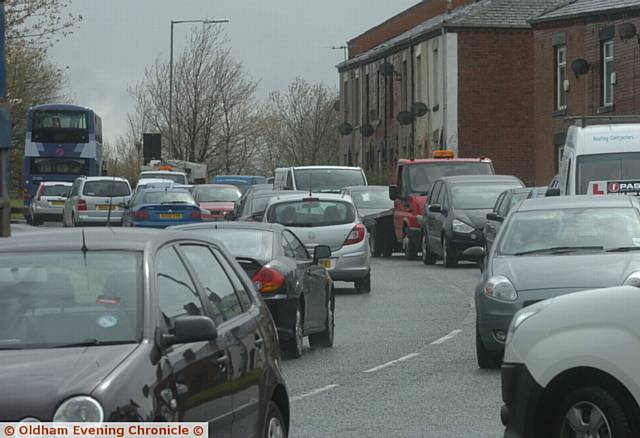Bus journeys lengthen as travel crisis grows
Reporter: Gillian Potts
Date published: 03 June 2016

BUSES are finding increasingly difficult to get from A to B.
ROAD congestion is "a disease" which has dramatically increased the time of bus journeys and brought average speeds to below 10mph in Greater Manchester, a new report warns.
The region's "congestion crisis" is causing average bus speeds to fall to below 10mph, increasing journey times at a rate of 7 to 8 per cent per decade in the county.
And, according to a new report, "The Impact of Congestion on Bus Passngers", a bus journey from Oldham Market Place/Oldham bus station to Piccadilly which took 34 minutes in 1966 now takes 46 minutes.
The study into the most accessible and commonly used form of public transport says unless congestion is tackled it will "destroy the bus sector".
According to campaigners Greener Journeys - a coalition of the UK's leading public transport organisations, user groups and supporters dedicated to encouraging people to make more sustainable travel choices - which commissioned the report, online shopping delivery, the upsurge of Uber taxi drivers and road works are mainly to blame.
The report found the problem is worsening in Greater Manchester with bus speeds dropping by nearly 5 per cent in the past two years, way above the national average fall of 1 per cent a year.
In turn this has effected bus service punctuality times by up 60 per cent and its feared this combination of factors will put people off using the service.
The research says Transport for Greater Manchester is delivering the largest contemporary urban public transport investment programme outside London, working closely with district authorities to create "a world-class public transport network" to help achieve world-class city status for Manchester.
The £122m Bus Priority Package was one of the largest investments in Greater Manchester's bus network for decades and initiatives such as the Cross City bus priority scheme are set to boost efficiency further.
The report says the "impressive investment" - including the expansion of Metrolink, major transport interchange facilities and extensive bus priority and busway schemes, cycling and town centre improvements - has seen car use reduced by 22 per cent at peak times.
But despite this, growing traffic trends are set to make the situation worse, with road traffic expected to grow by up to 55 per cent by 2040, and morning and evening 'rush hour' periods already lengthening.
The report claims that if journey times continue to decline at their current rate, bus passenger numbers will drop by between 10 per cent and 14 per cent every 10 years, putting the future of the bus sector under threat.
In Manchester and across the rest of the country, buses carry more commuters than all other forms of public transport combined and help to generate £64bn per year for local economies, while helping vulnerable people across the country stay connected with their communities.
Author of the report, Professor David Begg, visiting professor at Plymouth University and former chairman of the Government's Commission for Integrated Transport said: "Traffic congestion is a disease which if left unchecked will destroy the bus sector. If the trend is allowed to continue, then our urban buses will no longer represent a viable mode of transport for the majority of customers."
Recommendations include official targets for average bus speeds and the national introduction of contactless payments by 2019 - three years earlier than planned - could help to ease congestion.
Other measures to be considered include charging van drivers making deliveries during peak hours.
Most Viewed News Stories
- 1More than 650 fines issued this year on street with ‘horrifying’ problem
- 2Public Moorgate Halt crossing event set for Thursday
- 3Former office block set to be transformed into flats
- 4Police appeal for information following triple stabbing in Piccadilly Gardens
- 5Food donation bags boost Tesco Winter Food Collection as charities prepare for tough winter




